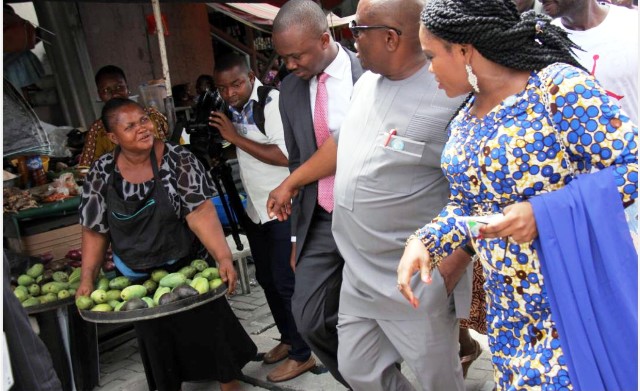Business
FEC Approves National Trade Negotiation Office

The Federal Executive Council (FEC) presided over by Acting President Yemi Osinbajo, has approved the establishment of a national office for trade negotiations.
The Minister of Industry, Trade and Investments, Dr Okechukwu Enelamah, said this while briefing State House correspondents at the end of the FEC meeting, Wednesday.
He said that the office would coordinate trade negotiations by Ministries, Departments and Agencies (MDAs) which were not properly done in the past.
“What we found was that this was happening in various ministries, departments and agencies with insufficient coordination and therefore, frequently, it had unintended consequences and costs for us.
“The cabinet decided that it is wise to establish a coordinating central office for trade negotiations, the Nigerian office for Trade Negotiations.
“It will be headed by a Chief Trade Negotiator of Ambassador rank that would then work with both the Economic Management Team and the cabinet.’’
The minister said that the office would assist in the coordination of the various trade discussions and negotiations.
He added that it would also be a proactive strategy for engaging discussions at the continental level of free trade area agreements and negotiations as well as guide in other trade agreements with strategic partners across the globe.
Enelamah said that the administration wanted to have trade remedies against dumping of substandard goods as well as other issues in line with global practices.
Also the Minister of Health, Prof. Isaac Adewole said that FEC approved a memorandum for the introduction of a new “Yellow Card’’ with advanced security features.
He said that the former card was prone to abuse through issuance by unauthourised persons to people not actually vaccinated.
“With this new card you cannot fake the yellow card; using a card reader; we can also document your vaccination status to know whether or not you have been genuinely vaccinated.
“As soon as we start the roll out, we will tell the Nigerian community the date of commencement; what to do with the one they have and when it will be phased out,’’ Adewole added.
Also the Transportation Minister, Mr Chibuike Amaechi, said the council approved two memoranda for the ministry.
“The Ministry of Transportation had two memos approved.
“One is that we commence negotiations after we have submitted the Outline Business Case (OBC) that was submitted by General Electric (GE).
“The transaction advisers would now commence negotiation with GE to conclude the concessioning of the narrow gauge which starts from Lagos to Kano, Funtua and Kauran Namoda as well as other areas.
“And then from Port Harcourt to Maiduguri, which includes Aba, Umuahia, Enugu, Makurdi, Jos, Bauchi, Gombe, up to Maiduguri.
“The next memo that was also approved has to do with the consultants that would supervise the construction of the Lagos–Ibadan railway.
“And when we award the Kano–Kaduna railway, the same consultants have also been approved.’’
Meanwhile, Information Minister Lai Mohammed, has described the reference to the portfolio of Osinbajo as coordinating President as a distraction.
“I think it is a needless controversy, just a distraction. The operative sentence is `in compliance with section 145 (1)’; any other word used is not relevant,’’ he said.
Business
NCDMB, Jake Riley Empower 250 Youths On Vocational Skills

Business
NUJ Partners RSIRS On New Tax Law Education

Transport
Nigeria Rates 7th For Visa Application To France —–Schengen Visa

-

 News12 hours ago
News12 hours agoNLC Threatens Nationwide Protest Over Electoral Act Amendment
-

 Maritime11 hours ago
Maritime11 hours agoOver 6,223 Seafarers Abandoned In 2025 – Says ITF
-

 Maritime10 hours ago
Maritime10 hours agoCustoms Hands Over Seized Cannabis Worths N4.7bn To NDLEA
-

 Politics10 hours ago
Politics10 hours agoI DEFECTED OUT OF CONVICTION …NO ONE COULD’VE IMPEACHED MY LATE DEPUTY ~ DIRI
-

 News12 hours ago
News12 hours agoTinubu Embarks On Two-Day State Visit To UK, March 18
-

 Politics10 hours ago
Politics10 hours agoWe’ve Not Recognized Any PDP Faction — INEC
-

 Environment7 hours ago
Environment7 hours agoRivers State Government Suspend Fire Service Collection Levies
-

 Education9 hours ago
Education9 hours agoFG commends FUET over historic beginning as VC lament over poor funding

